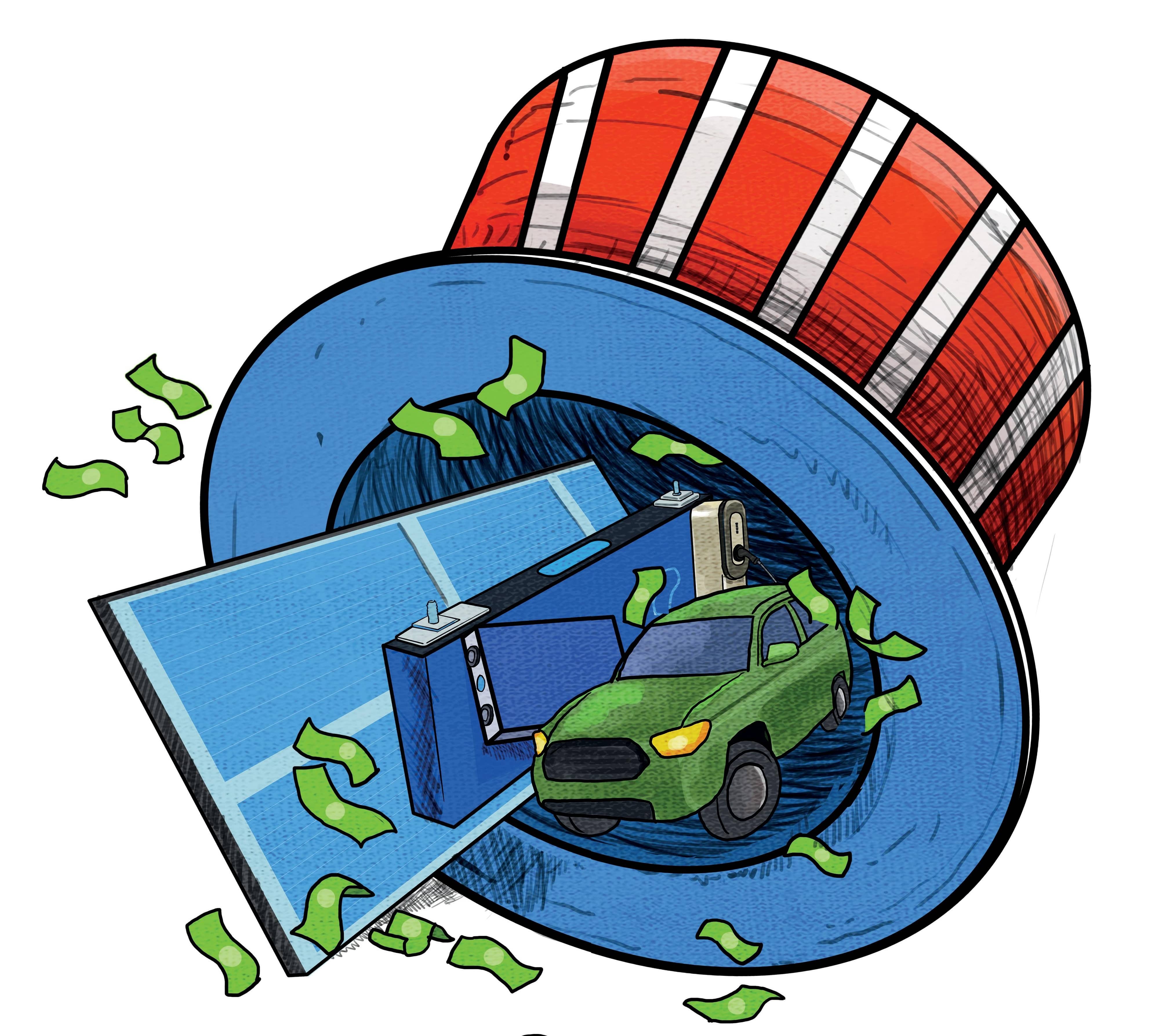Essayer OR - Gratuit
A NEW ORDER OF TRADE
Down To Earth
|February 16, 2023
The global superpowers are abandoning free trade to fight climate change. Armed with massive subsidies and tariffs, the US and EU are leading this charge towards protectionism. This may change the global trade system as we know it. But will developing countries and the climate gain from it? An analysis

THE RACE to build a low-carbon economy is heating up. Countries have in recent months proposed or introduced policies and laws to speed up the transition from fossil fuels, promote manufacturing of clean-energy technologies at scale and decarbonise industries. On the face of it, this race appears to be part of the global effort to cut greenhouse gas emissions. But it has sparked fears of economic rivalry and neo-protectionism, as governments on the pretext of climate action try to reshore green industries and dominate the global supply chain of goods and technologies essential to avert a climate catastrophe.
Some of the new climate-focused trade measures that threaten globalisation as we know it are by the US and EU—the largest and second largest historical emitters of greenhouse gases.
Consider the Inflation Reduction Act (ira), passed by the US in August 2022. It has been billed as the most serious effort yet by the US to face up to climate change. Under ira, the government aims to unleash subsidies, about $370 billion, mainly through tax credits, over 10 years for sectors such as renewable energy, electric vehicles, energy efficient appliances and leading-edge technologies like carbon capture and storage and clean hydrogen. An analysis by McKinsey, a global management consulting firm, shows that corporations are the biggest recipient of ira funding, with an estimated $216 billion worth of tax credits. There are indirect subsidies for manufacturers too, in the form of tax credits worth $43 billion, that aim to make low-carbon purchases such as electric vehicles and rooftop solar panels more affordable.
Cette histoire est tirée de l'édition February 16, 2023 de Down To Earth.
Abonnez-vous à Magzter GOLD pour accéder à des milliers d'histoires premium sélectionnées et à plus de 9 000 magazines et journaux.
Déjà abonné ? Se connecter
PLUS D'HISTOIRES DE Down To Earth

Down To Earth
THINK TWICE BEFORE FELLING SAL TREES
Many trees considered to be affected by sal borer in the 1990s are still alive today
1 mins
February 16, 2026

Down To Earth
EDGE OF SURVIVAL
Caste divides deny marginalised communities land, resources and essential aid, leaving them more vulnerable to climate disasters
6 mins
February 16, 2026

Down To Earth
A WISH LIST?
Union Budget for 2026-27 conveys the impression of a roll-call of intentions and ambitious proposals, with little detail on their formulation
6 mins
February 16, 2026
Down To Earth
Break down the gender wall
THE RULING National Democratic Alliance (NDA) government has been heavily invested in the goal to make India a developed economy by 2047.
2 mins
February 16, 2026

Down To Earth
MENSTRUAL HEALTH, NOW A FUNDAMENTAL RIGHT
In a landmark judgement, the Supreme Court has recognised menstrual health and hygiene as a fundamental right under Article 21 of the Constitution of India, which guarantees the right to life and dignity.
8 mins
February 16, 2026

Down To Earth
Of devolution and new disasters
The 16th Finance Commission pushes for changes in view of new fiscal and climatic conditions
11 mins
February 16, 2026
Down To Earth
Rising risks of plastics
NEGATIVE IMPACTS on human health due to emissions linked to the plastic lifecycle could double by 2040, according to a study published in The Lancet Planetary Health in January.
1 min
February 16, 2026

Down To Earth
GAP BETWEEN EPIDEMICS NARROWING
A watershed-based and landscape-level approach is needed to address forest degradation
2 mins
February 16, 2026

Down To Earth
WAITING TO STRIKE
Sal heartwood borer is considered the biggest threat to forestry in India, especially to the sal tree, where it lives and breeds.
11 mins
February 16, 2026

Down To Earth
A SPRING DELIGHT
Mustard flowers are not meant only for the eyes. Invite them to your plate once in a while
3 mins
February 16, 2026
Translate
Change font size
